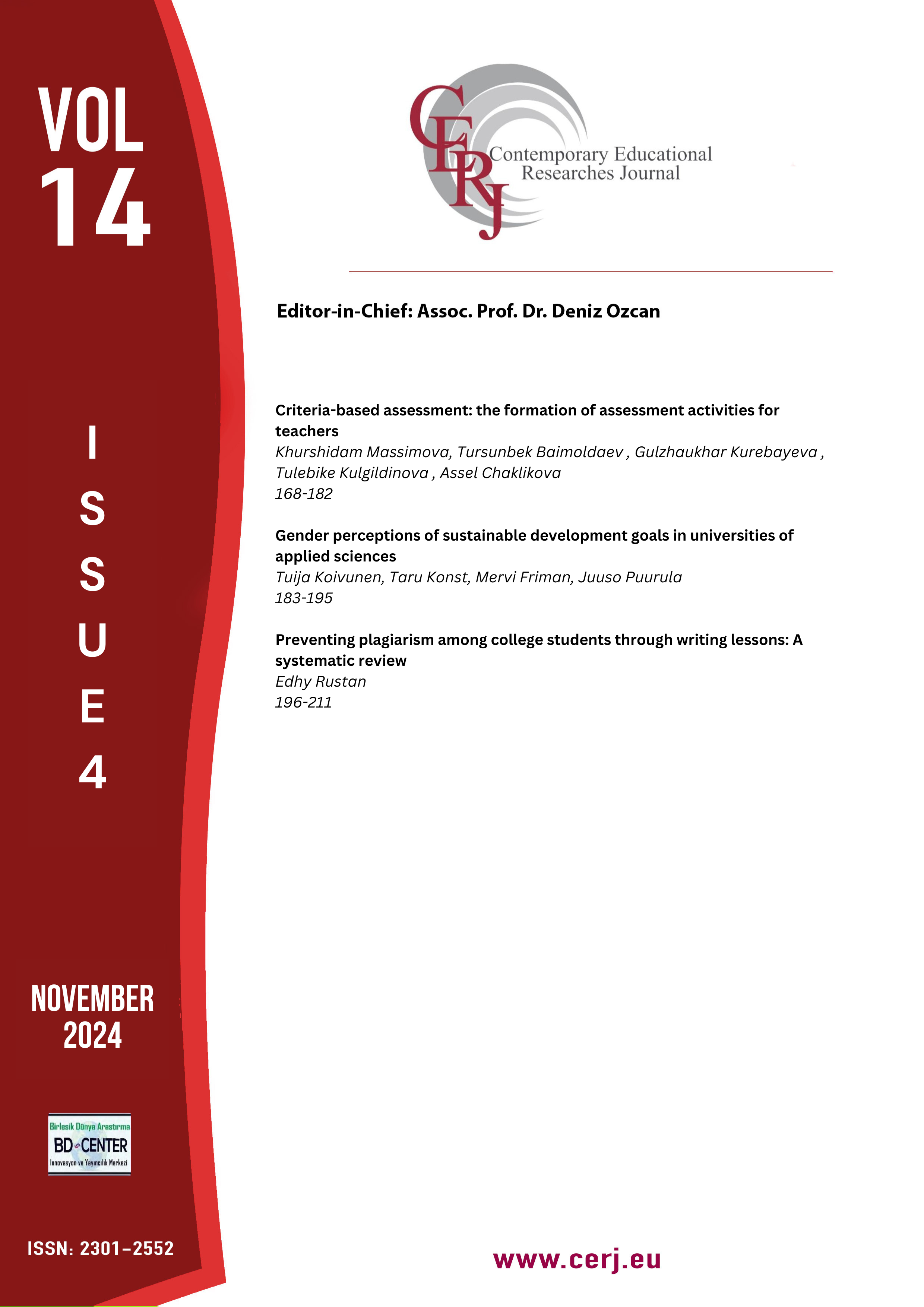Gender perceptions of sustainable development goals in universities of applied sciences
Main Article Content
Abstract
This exploratory study examined gender differences in perceptions of sustainable development among staff members at two Finnish universities of applied sciences. Grounded in the context of sustainability and gender in higher education, the study aimed to determine whether gender-based variations exist in staff views on sustainable development. Data were collected from 386 academic and non-academic staff members through a survey based on the United Nations’ 17 Sustainable Development Goals, and the analysis was conducted using statistical methods. The results indicated slight gender differences in how staff perceived the importance of sustainable development goals and their application in professional contexts. However, a more notable gender difference emerged in how these goals were reflected in everyday life and free time, aligning with findings from previous studies. These results highlight the challenge of fostering a holistic and systemic understanding of sustainability within the university community, regardless of gender. Nonetheless, recognizing gender-based differences can provide a valuable foundation for integrating diverse perspectives into sustainable development efforts in higher education.
Keywords: Agenda 2030; gender; sustainable development goals; university of applied sciences; university staff
Downloads
Article Details

This work is licensed under a Creative Commons Attribution-NonCommercial-NoDerivatives 4.0 International License.
Authors who publish with this journal agree to the following terms:
- Authors retain copyright and grant the journal right of first publication with the work simultaneously licensed under a Creative Commons Attribution License that allows others to share the work with an acknowledgement of the work's authorship and initial publication in this journal.
- Authors are able to enter into separate, additional contractual arrangements for the non-exclusive distribution of the journal's published version of the work (e.g., post it to an institutional repository or publish it in a book), with an acknowledgement of its initial publication in this journal.
- Authors are permitted and encouraged to post their work online (e.g., in institutional repositories or on their website) prior to and during the submission process, as it can lead to productive exchanges, as well as earlier and greater citation of published work (See The Effect of Open Access).
